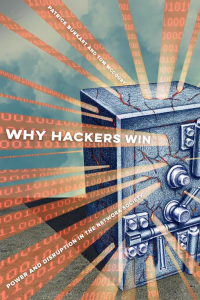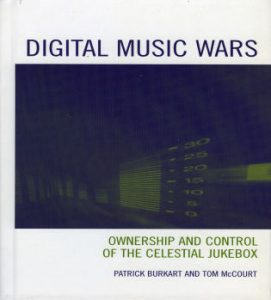Patrick Burkart

- Areas of Speciality
-
- Communication & Media Science
- Humanities & Critical/Cultural Studies
- Communication, Politics, and Policy
- Contact
-
- pburkart@tamu.edu
- BLTN 205B
- Professional Links
Introduction
Technology, law, and policy; International communication; Music industry
Bio
Patrick Burkart is a Professor of Communication at Texas A&M University, and author of Why Hackers Win: Power and Disruption in the Network Society (University of California Press, 2019, with Tom McCourt), Pirate Politics: The New Information Policy Contests (MIT Press, 2014), Music and Cyberliberties (Wesleyan University Press, 2010), and Digital Music Wars: Ownership and Control of the Celestial Jukebox (Rowman & Littlefield, 2006, with Tom McCourt). Patrick Burkart was Editor in Chief of Popular Communication: The International Journal of Media and Culture from 2012 – 2022. His principal areas of research and teaching are international political economy of communication, communication and technology, and communication law and politics.
Courses Taught
COMM 410: Radio Records & Popular Music
COMM 458: Global Media
COMM 454: Telecommunications Policy
COMM 460: Information Society
COMM 453: Video Games
Representative Publications
- Burkart, P. and Leijonhufvud, S. (2019). The Spotification of public service media. The Information Society 35(4).
- Burkart, P. and McCourt, T. (2017). The international political economy of the hack. Popular Communication: The International Journal of Media and Culture 15(1): 37-54.
- Schwarz, J.A. and Burkart, P. (2015). Piracy and Social Change. Popular Communication: The International Journal of Media and Culture 13(1): 1-5. DOI: 10.1080/15405702.2015.990329
Books

“Simply the best book on the complex relationship that binds hacking to cybersecurity. Drawing on extensive documentation, Burkart and McCourt brilliantly describe the economic, political, and legal issues shaping the digital world. A must-read for scholars, policy makers, and activists.”––Vincent Mosco, author of The Smart City in a Digital World
Patrick Burkart, Pirate Politics: The New Information Policy Contests. MIT Press, 2014
“Burkart uses second-generation critical theory and new social movement theory as theoretical perspectives for his analysis of the democratic potential of Pirate politics. After setting the Pirate parties in conceptual and political contexts, Burkart examines European antipiracy initiatives, the influence of the Office of the U.S. Trade Representative, and the pressure exerted on European governance by American software and digital exporters. He argues pirate politics can be seen as ‘cultural environmentalism,’ a defense of Internet culture against both corporate and state colonization.”
Patrick Burkart, Music and Cyberliberties. Wesleyan University Press, 2010
“Music and Cyberliberties identifies the groups – alternative and radical media activists, culture jammers, hackers, netlabels, and critical legal scholars – who are pushing back against the ‘copyright grab’ by major labels for the rights and privileges that were once enjoyed by artists and fans. Burkart reflects on the emergence of peer-to-peer networking as a cause célèbre that helped spark the movement, and also lays out the next stages of development for the Celestial Jukebox that would quash it. By placing the musical activist groups into the larger context of technology and new social movement theory, Music and Cyberliberties offers an exciting new way of understanding the technological and social changes we confront daily.”

“Digital Music Wars explores these transformations and the far-reaching implications o downloading music in an in-depth and insightful way. Focusing on recent legal, corporate, and the technological developments, the authors show how the online music industry will establish the model for digital distribution, cultural access, and consumer privacy. Music lovers and savvy online shoppers will want to read this book, as well as students and researchers interested in new media and the future of online culture”


